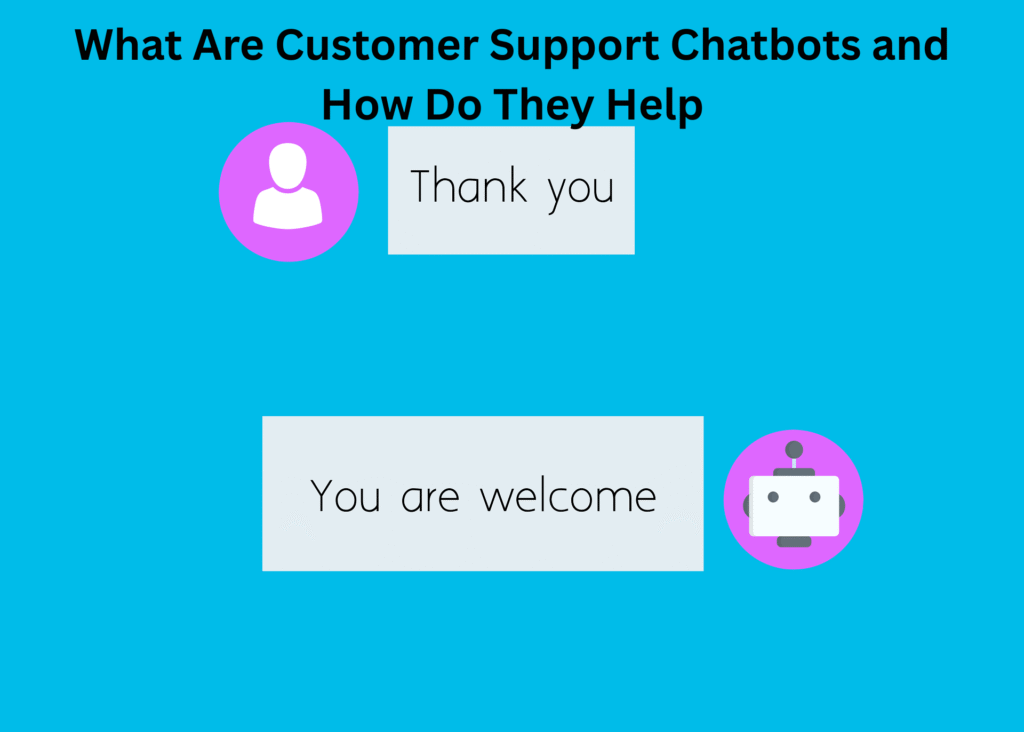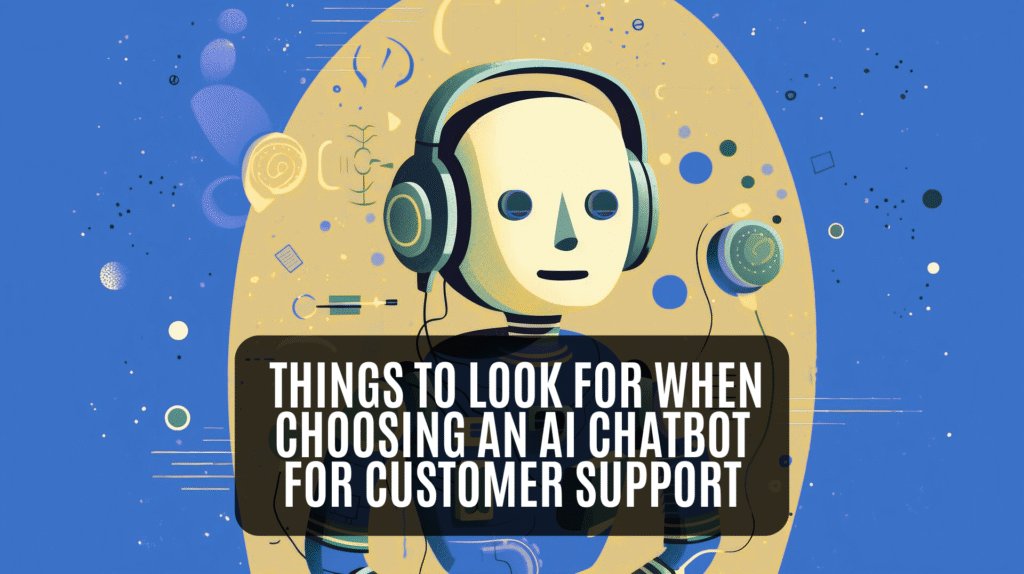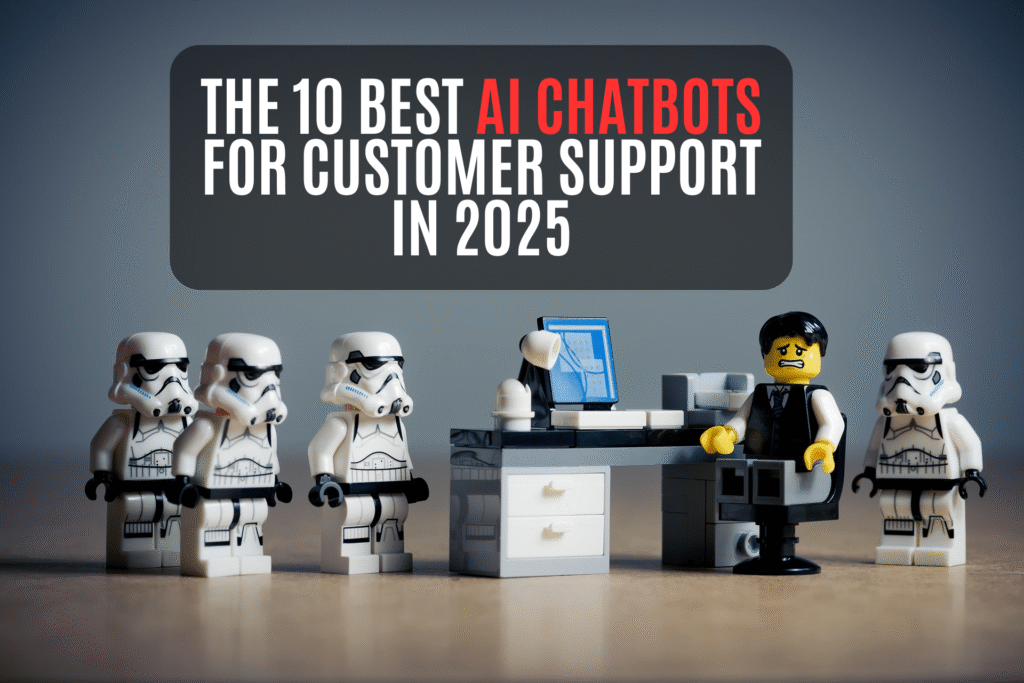Welcome to our blog. A space dedicated to helping you improve your daily life, personal lifestyle, and personal finance, and keep updated with current trends.
In this guide, we will explore how Artificial Intelligence (AI) has evolved, the Best AI Chatbots for Customer Support, what makes chatbots valuable, the key factors to consider when choosing one, and the leading chatbot solutions on the market.
Here are some of our popular posts: Top 10 best website builders, Best super foods for a healthy lifestyle, the unlimited list of free productivity apps, Best freelance site to find remote jobs, top 10 productivity hacks for entrepreneurs , 10 best side hustles to make extra money online, best online courses for learning digital skills, top 10 best free coding website
AI chatbots have become indispensable for customer support in 2025, offering businesses scalable, intelligent, and 24/7 service solutions. They are no longer simple automated responders but advanced digital assistants powered by natural language processing and machine learning. In this guide, we’ll explore how Artificial Intelligence has evolved, what chatbots actually do, how to choose the right one, and the Best AI Chatbots for Customer Support that are redefining customer service this year.
What Is AI and How Has It Evolved in Business by 2025

Artificial Intelligence (AI) refers to machines that simulate human intelligence through learning, reasoning, and problem-solving. By 2025, AI is no longer an emerging technology—it’s a foundational part of how modern businesses operate.
AI systems today power everything from predictive analytics and customer segmentation to personalized marketing and automated service delivery. With more advanced Natural Language Processing (NLP) and Machine Learning (ML), chatbots can now understand tone, emotion, and intent, making them feel almost human.
Here’s how AI has transformed the business landscape:
Context-Aware Communication – AI can understand the context behind customer questions, not just keywords.
Smarter Automation – Businesses automate repetitive tasks like FAQs, data entry, and ticket routing with remarkable precision.
Omnichannel Integration – AI chatbots integrate seamlessly across social media, email, websites, and messaging apps.
Data-Driven Insights – Machine learning helps identify customer behavior patterns and predict needs before they’re expressed.
Enhanced Personalization – Brands use AI to deliver customized product recommendations and personalized responses at scale.
What Are Customer Support Chatbots and How Do They Help

Customer support chatbots have evolved into one of the most valuable tools for businesses in 2025. These AI-driven virtual assistants are designed to engage with users through chat or voice, offering fast, intelligent, and seamless communication across multiple platforms. They’re capable of answering questions, processing orders, troubleshooting issues, and even recommending or upselling products—all without the need for human intervention.
Today’s customer expectations are higher than ever. People want instant solutions, 24/7 accessibility, and personalized assistance that feels human. That’s where AI chatbots come in. By leveraging advanced natural language processing (NLP) and machine learning (ML), these systems understand context, tone, and intent, making their interactions increasingly natural and accurate.
In 2025, AI chatbots are no longer just an add-on—they’ve become an integral part of customer experience management. Whether you’re a startup trying to handle growing customer inquiries or a global enterprise looking to streamline operations, AI-powered support is now a strategic necessity. Let’s explore why these chatbots are reshaping customer service around the world.
24/7 Availability
Unlike human agents, chatbots never need breaks or sleep. They operate around the clock, offering instant assistance across all time zones. This ensures that customers can get help the moment they need it—whether it’s in the middle of the night or during peak hours. For global businesses, this kind of nonstop service is invaluable in maintaining customer satisfaction and accessibility.
Significant Cost Savings
One of the biggest advantages of AI chatbots is their impact on operational costs. By automating common inquiries—like order tracking, password resets, or refund requests—businesses can reduce support expenses by up to 30% or more. This allows customer service teams to focus on complex, high-value interactions while chatbots efficiently handle the repetitive tasks. The result is a smarter allocation of resources and a healthier bottom line.
Scalability Without Limits
Human teams can only handle a certain number of customer interactions at once. AI chatbots, on the other hand, can engage with thousands of users simultaneously without any drop in performance or quality. This scalability is especially useful during product launches, promotions, or holiday rushes when inquiry volumes skyrocket. Instead of hiring extra staff, companies can rely on their AI chatbot to manage the surge effortlessly.
Faster Response Times
In an era where customers expect instant gratification, speed is everything. AI chatbots provide immediate responses, significantly reducing wait times that typically frustrate users. A chatbot can greet visitors, answer basic questions, and even escalate issues to a human agent when necessary—all within seconds. This quick turnaround not only improves satisfaction but also enhances brand perception as responsive and customer-focused.
Improved Accuracy and Learning Over Time
Modern chatbots are more intelligent than ever. Thanks to machine learning algorithms, they continuously learn from past interactions and user feedback. Over time, their responses become more accurate, context-aware, and personalized. This means fewer errors, smoother conversations, and a more consistent customer experience. As the AI refines its understanding, it becomes a true extension of the support team, capable of handling increasingly complex queries.
Higher Customer Satisfaction and Trust
Ultimately, the greatest impact of AI chatbots lies in how they enhance customer satisfaction. By providing instant, accurate, and consistent support, these bots build a sense of reliability and trust. Customers feel valued because their issues are resolved quickly and efficiently, and businesses benefit from stronger loyalty and positive word-of-mouth. A well-trained chatbot can even anticipate needs, making recommendations or offering helpful resources before a problem escalates.
Things to Look for When Choosing an AI Chatbot for Customer Support

Not all AI chatbots are created equal. The right choice depends on your business goals, customer interaction volume, and technical capabilities. To help you find the Best AI Chatbot for Customer Support, here’s a detailed breakdown of the essential features and why they matter.
#1. Natural Language Understanding (NLU) and Machine Learning (ML)
The foundation of a great AI chatbot lies in its ability to understand and respond like a human. NLU allows the bot to interpret user intent, tone, and context, while ML helps it learn and adapt over time. A chatbot with strong NLU and ML capabilities improves with every conversation, offering more accurate, natural, and helpful responses. This makes interactions smoother and reduces customer frustration, ultimately enhancing satisfaction and trust.
#2. Omnichannel Support
Modern customers expect to interact with businesses through their preferred platforms—whether it’s web chat, social media, email, or mobile apps. The best chatbots unify these channels, providing consistent experiences across all touchpoints. This ensures that a customer starting a conversation on Instagram, for example, can continue seamlessly on a website or WhatsApp without losing context. Omnichannel functionality also boosts engagement and retention by meeting customers wherever they are.
#3. CRM and Helpdesk Integration
A powerful AI chatbot doesn’t work in isolation—it should integrate seamlessly with CRM and support tools like Salesforce, HubSpot, Freshdesk, or Zendesk. These integrations allow chatbots to access customer data, order history, and support tickets in real time, enabling them to deliver highly personalized responses. For support teams, this means fewer manual tasks, faster resolution times, and a more connected customer experience.
#4. Customization and Branding
Every business has a unique identity, and your chatbot should reflect that. Look for chatbots that allow customization of tone, personality, color schemes, and responses. Whether your brand voice is friendly, professional, or playful, the chatbot should align with it. This helps reinforce brand consistency and creates an authentic experience that feels like an extension of your team—not just a robot answering questions.
#5. Security and Compliance
In 2025, data protection and privacy are more critical than ever. Your chatbot must comply with regulations such as GDPR, HIPAA, or CCPA, depending on your industry and region. Look for platforms that offer end-to-end encryption, secure APIs, and access control to safeguard sensitive customer data. Security compliance not only prevents legal issues but also builds trust with your audience.
#6. Analytics and Reporting
Analytics are the backbone of chatbot performance optimization. The best AI chatbots for customer support provide detailed insights into response times, conversation volumes, sentiment analysis, and resolution rates. These reports help businesses understand customer needs, identify pain points, and improve bot scripts for better efficiency. Over time, this data-driven approach can lead to smarter decision-making and measurable ROI.
#7. Ease of Use and No-Code Design
Not every business has a dedicated tech team, which is why no-code or low-code chatbot builders have become increasingly popular. These platforms allow you to design, train, and deploy chatbots without programming knowledge. Drag-and-drop interfaces, pre-built templates, and visual workflows make it easy for marketing or support teams to maintain bots independently. This saves time, reduces dependency on developers, and ensures quick scalability.
The 10 Best AI Chatbots for Customer Support in 2025

Now, let’s take a deeper look at the Best AI Chatbots for Customer Support, highlighting how each platform adds value, their typical use cases, and estimated pricing where available. These AI tools are shaping the future of customer service with automation, personalization, and seamless integration.
#1. ProProfs Chat
Overview: ProProfs Chat is one of the most beginner-friendly chatbot platforms available, offering a no-code setup that allows businesses to deploy customer support bots in minutes.
Use Case: Ideal for small and mid-sized businesses that need 24/7 live chat and automated lead generation without heavy technical setup.
Added Value: It integrates with tools like Salesforce, HubSpot, and WordPress, making it versatile for e-commerce and service industries.
Pricing: Starts at around $10 per agent/month, with a free trial available.
#2. Digital Genius
Overview: Digital Genius focuses on automating customer interactions using machine learning and natural language processing (NLP). It can handle complex, multichannel support requests efficiently.
Use Case: Best suited for large enterprises, logistics, and e-commerce brands managing high message volumes.
Added Value: Its predictive automation reduces agent workload by up to 60%, learning continuously from historical customer data.
Pricing: Enterprise-level pricing, generally starting from $149/month per seat, depending on usage.
#3. Haptik
Overview: Acquired by Jio Platforms, Haptik is an AI chatbot powerhouse designed for marketing and customer service automation. It enables smooth interactions across WhatsApp, Messenger, and web chat.
Use Case: Excellent for telecom, banking, and eCommerce companies that require multilingual and high-volume automation.
Added Value: Haptik’s analytics dashboard helps track customer sentiment and optimize responses over time.
Pricing: Custom enterprise pricing based on usage and channels.
#4. Zowie
Overview: Zowie is an AI-powered chatbot optimized for e-commerce businesses. It uses intent recognition to understand customer questions instantly and automate personalized support.
Use Case: Ideal for online stores and brands looking to reduce ticket loads and improve response speed.
Added Value: Integrates seamlessly with Shopify, Magento, and Zendesk while offering insights into customer buying intent.
Pricing: Starts from $499/month, reflecting its enterprise-grade capabilities.
#5. UltimateGPT
Overview: UltimateGPT uses the latest GPT technology to power natural, multilingual, and context-aware conversations. It connects deeply with CRMs, ERPs, and analytics tools.
Use Case: Designed for global companies handling multi-language customer support and sales interactions.
Added Value: Advanced AI reasoning ensures accurate, human-like communication and response personalization.
Pricing: Custom plans available, typically starting at $300/month for small teams.
#6. Ada
Overview: Ada offers a no-code platform for automating proactive customer support. It is widely used by enterprises wanting to personalize their customer journeys.
Use Case: Great for large-scale organizations like airlines, banks, and insurance providers looking to automate routine interactions.
Added Value: Ada helps businesses achieve up to 80% automation, lowering support costs significantly while maintaining brand voice.
Pricing: Starting at $60 per seat/month, with custom enterprise options.
Overview: EinsteinGPT is Salesforce’s next-generation AI tool that combines CRM data with conversational intelligence for smarter customer engagement.
Use Case: Perfect for existing Salesforce users who want integrated insights, predictive support, and automation in one ecosystem.
Added Value: Provides deep analytics and AI-driven recommendations to enhance agent productivity and sales performance.
Pricing: Available as an add-on within Salesforce CRM, starting around $75/user/month.
#8. Zendesk Answer Bot
Overview: Zendesk’s Answer Bot automates responses within the Zendesk platform, deflecting repetitive tickets while handing complex queries to human agents.
Use Case: Suited for small to large businesses already using Zendesk for customer support.
Added Value: Reduces ticket volume by up to 40% and shortens response times with AI-driven accuracy.
Pricing: Included in Zendesk Suite Professional plans, starting from $55 per agent/month.
#9. Intercom Fin
Overview: Intercom Fin combines conversational AI with human backup, delivering instant answers while escalating tricky cases seamlessly to agents.
Use Case: Perfect for startups and SaaS companies that want a balance between AI efficiency and human empathy.
Added Value: Integrates with Slack, HubSpot, and Stripe, offering a flexible approach to customer engagement.
Pricing: Starting from $39/month per seat, plus usage fees for AI interactions.
#10. Netomi
Overview: Netomi delivers hyper-automated yet empathetic AI customer support. Its emotional intelligence engine allows for more human-like conversations.
Use Case: Ideal for industries such as travel, insurance, and e-commerce that value speed and personalization.
Added Value: Offers up to 90% automation accuracy with sentiment detection and personalized recommendations.
Pricing: Enterprise-based pricing starting at around $1,000/month, depending on scale and use case.
Conclusion: The Best AI Chatbots for Customer Support
The era of waiting in long support queues is over. The Best AI Chatbots for Customer Support in 2025 are transforming how businesses interact with customers. They provide instant, accurate, and scalable service while helping companies save time and money.
Here are some of our popular posts: Top 10 best website builders, Best super foods for a healthy lifestyle, the unlimited list of free productivity apps, Best freelance site to find remote jobs, top 10 productivity hacks for entrepreneurs , 10 best side hustles to make extra money online, best online courses for learning digital skills, top 10 best free coding website
In this guide, we explored how AI has evolved, what makes chatbots valuable, the key factors to consider when choosing one, and the leading chatbot solutions on the market.
AI chatbots are no longer optional—they’re essential business assets that drive customer satisfaction and operational efficiency. As AI continues to evolve, expect these bots to become even more human-like, capable of empathy, emotion detection, and seamless multi-language communication.
If you’re ready to enhance your customer experience, start by exploring one of the Best AI Chatbots for Customer Support mentioned above and take your business into the future of intelligent customer engagement.


